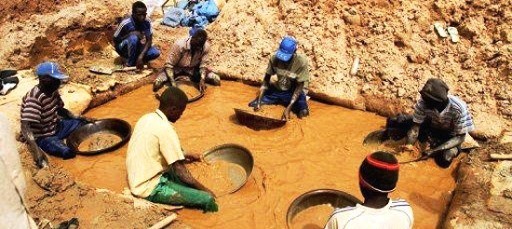A team of Russian geologists has recently conducted a three-day survey for mineral resources in Magwi County, Eastern Equatoria State, prompting mixed reactions from local communities over concerns about transparency and lack of community involvement.
The team, consisting of nine geologists, visited Patoko village and Alipo Hills in Owinykibul Payam, using GPS-guided equipment to assess the area’s mineral potential.
According to local officials, the team did not engage community members in the exploration activities, raising concerns among residents.
During their stay, the geologists camped at Alliance Secondary School without formal agreements with the host community, further fueling unease.
Oyet Joseph Charles, the head chief of Owinykibul Payam, told Radio Tamazuj that the geologists collected approximately 25 grams of soil mixed with traces of gold for laboratory testing.
“They stayed for three days and took samples to be tested in a lab,” Oyet said. “They told us that if the tests confirm the presence of valuable minerals, they will return and a formal agreement will be reached with the community.”
Magwi County Commissioner Benjamin Pole-Pole Olum confirmed the presence of the Russian team and said their visit was sanctioned by the national government.
“The Russians are not acting independently,” Olum said. “They are operating under the mandate of the Government of South Sudan to identify and document available natural resources for future use.”
He added that local authorities were informed of the mission and that the geologists met with Payam leaders and other stakeholders before beginning their work.
However, some civil society actors have expressed concern about the process.
Jimmy Kilang, interim chairperson of the Civil Society Network in Eastern Equatoria, warned that excluding communities from resource exploration could lead to tensions.
“It is not right,” Kilang said. “The government should involve local intellectuals and community members. These resources must benefit everyone and should be linked to development and service delivery.”
He called for increased transparency and dialogue to ensure that resource exploration leads to sustainable benefits for both the government and local communities.
A report released in May by the Civil Society Coalition on Natural Resources (CSCNR) highlighted ongoing issues in South Sudan’s mineral sector, including illicit activity, poor oversight, and lack of accountability.
The report noted that while South Sudan is believed to produce between 30 and 40 tons of gold annually, the revenue is largely absent from the national budget. Local communities remain impoverished despite significant gold exports.




